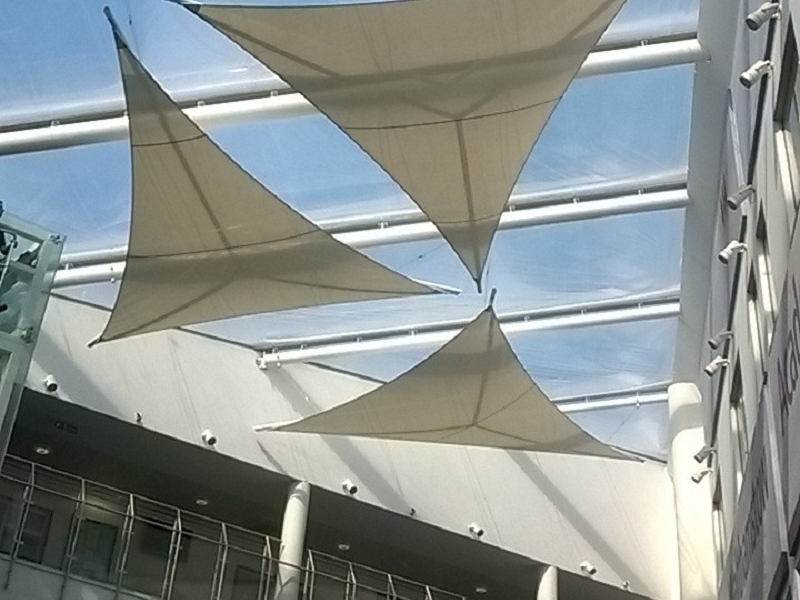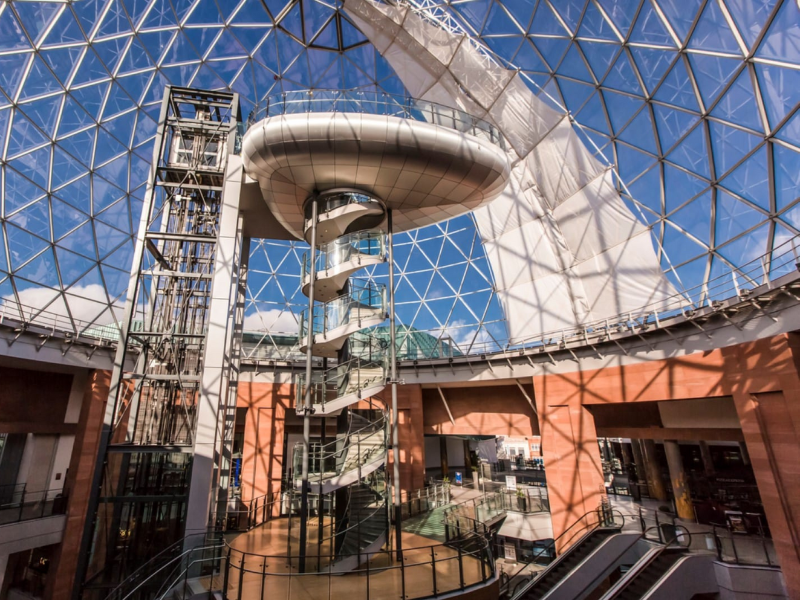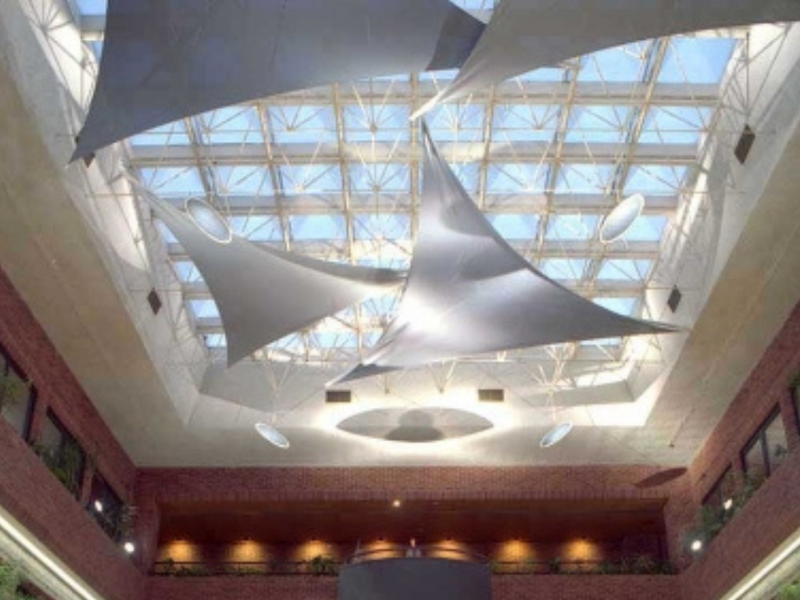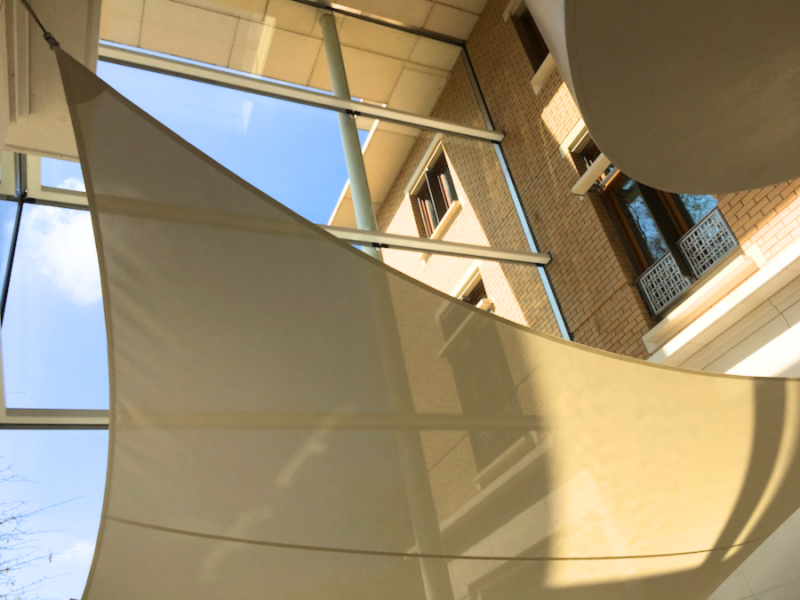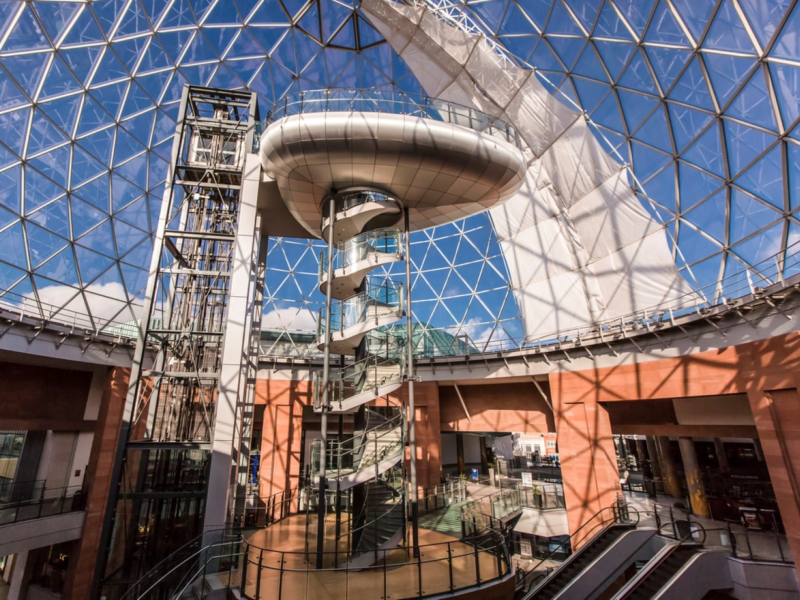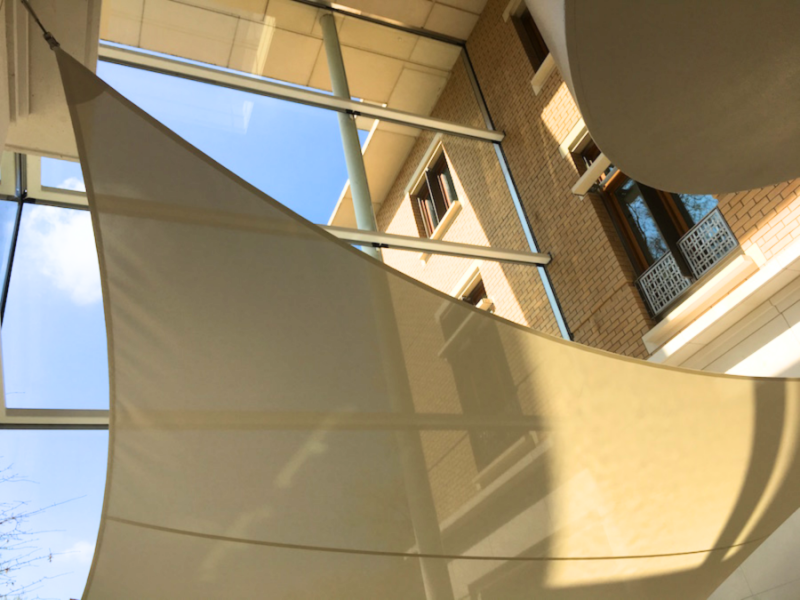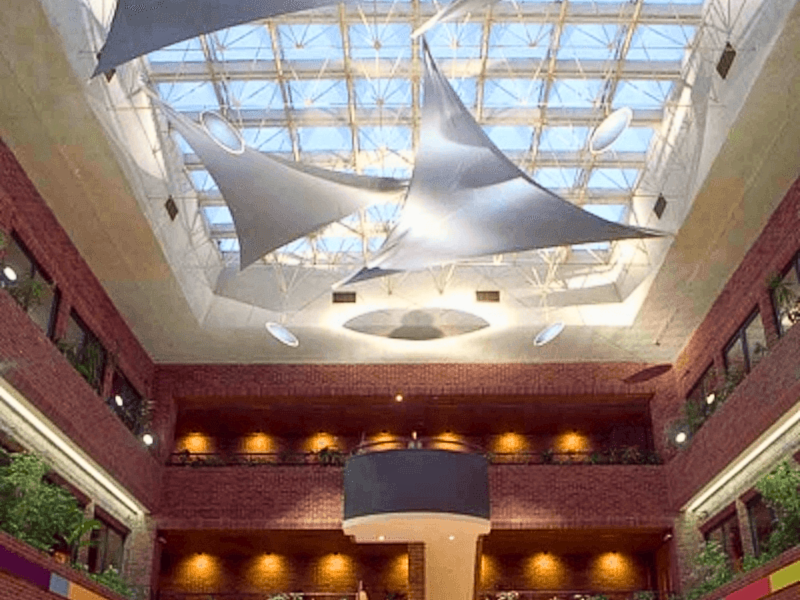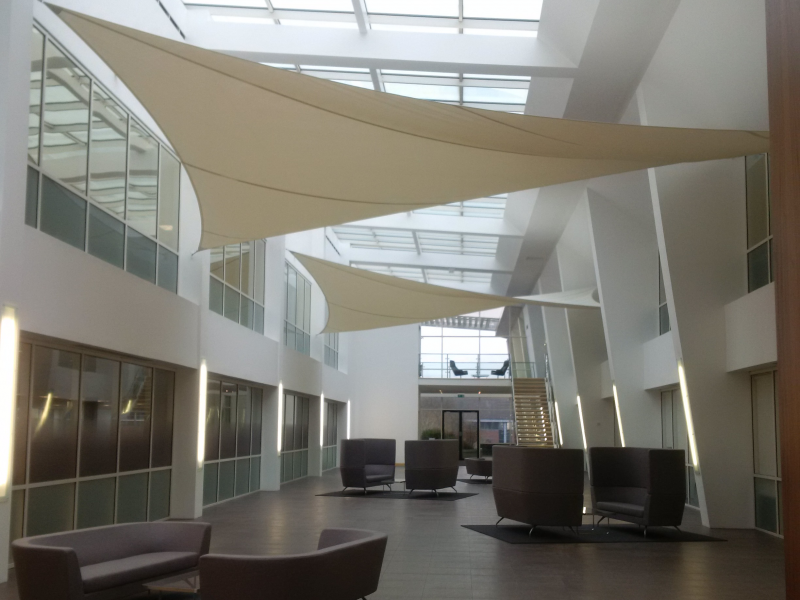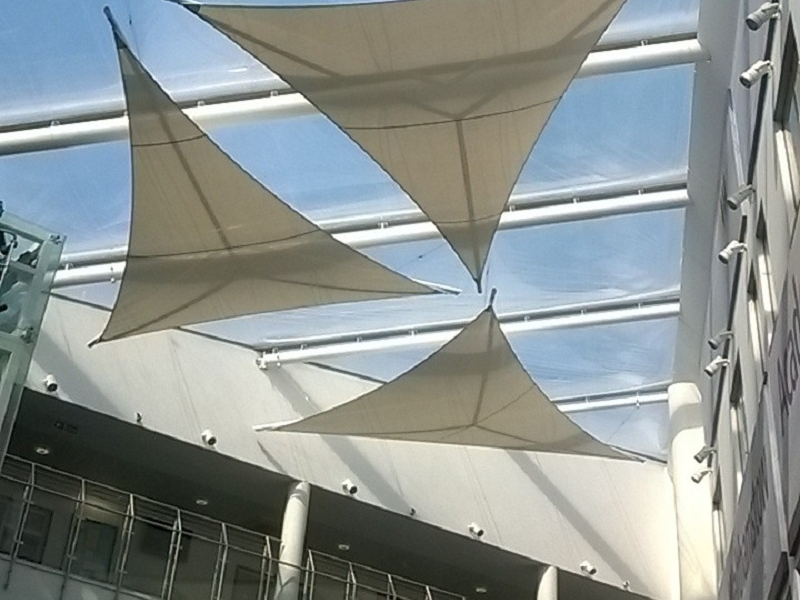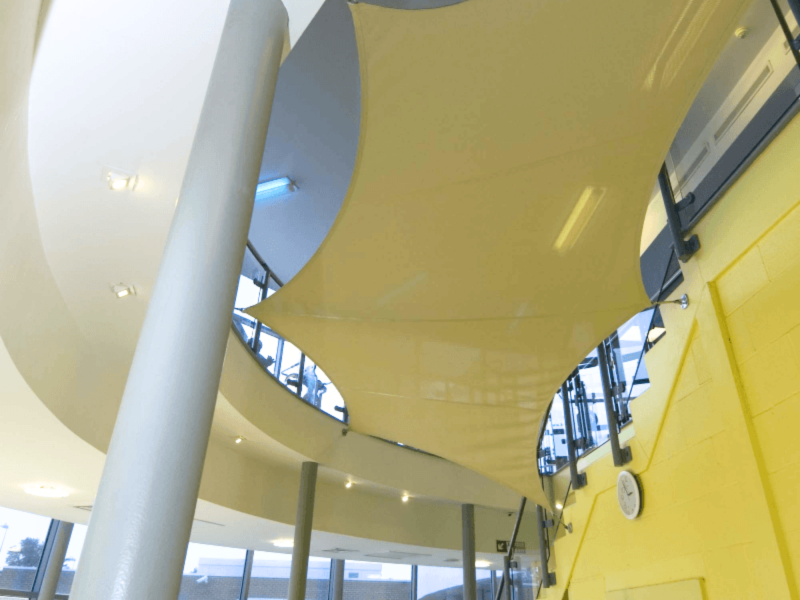PVC - GLASS
One of the most notable characteristics of PVC glass is its exceptional transparency. The incorporation of glass fibres in the PVC matrix allows for high-light transmission, creating an environment flooded with natural light. This feature not only enhances the visual appeal of tensile fabric structures but also contributes to energy efficiency by reducing the need for artificial lighting during daylight hours. The transparency of PVC glass provides a sense of openness, connecting the interior space with the surrounding environment.
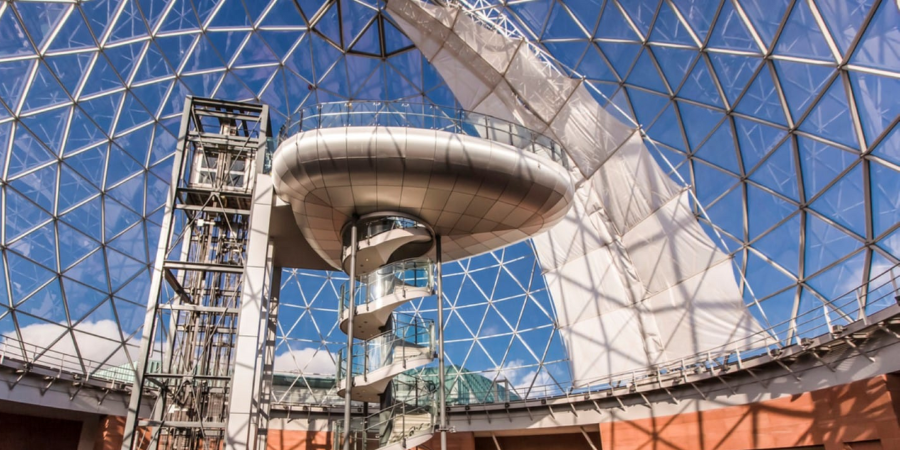
Moreover, PVC glass offers remarkable durability and resistance to environmental factors. The PVC component provides strength and stability, while the glass fibres enhance the fabric's resilience and structural integrity. This combination ensures that PVC glass can withstand harsh weather conditions, including UV radiation, heavy rainfall, and temperature fluctuations, without compromising its performance or appearance. The material's resistance to fading and degradation makes it suitable for long-term outdoor applications, such as canopies and facades.
Additionally, PVC glass is lightweight and flexible, allowing for the creation of dynamic and innovative architectural designs. The material can be easily tensioned and stretched, enabling the realisation of unique geometries and complex shapes. This flexibility provides architects and designers with ample creative freedom, facilitating the construction of visually striking and aesthetically pleasing tensile fabric structures.
Furthermore, PVC glass is available in a range of colours and finishes, allowing for customisation and design versatility. Whether a project calls for a translucent or opaque membrane, PVC glass can be tailored to meet specific design requirements and aesthetic preferences. The material can be translucent, providing diffused light, or opaque, offering privacy and shading options.
In summary, PVC-glass is a versatile material in tensile fabric architecture that combines the transparency of glass with the durability and flexibility of PVC. It's exceptional transparency, durability, resistance to environmental factors, and design versatility make it a valuable choice for creating visually stunning and functional tensile fabric structures. Whether used for canopies, roofs, or facades, PVC glass contributes to the creation of captivating architectural designs that harmonise with their surroundings while embracing the benefits of natural light.
Flexlight Shield 800 - An INNOVATION IN FIRE-RETARDANT PVC
J & J Carter are delighted to be among the very first to offer this impressive innovation in tensile fabric. Created by Serge Ferrari, Flexlight Shield 800 is the only membrane that combines such significant safety features with exceptional performance.
This PVC is the ideal choice, particularly when creating large-scale semi-permanent structures, large-scale event structures, sports facilities, sports halls, industrial structures, storage units and warehouses. Discover more here.
